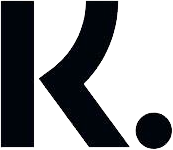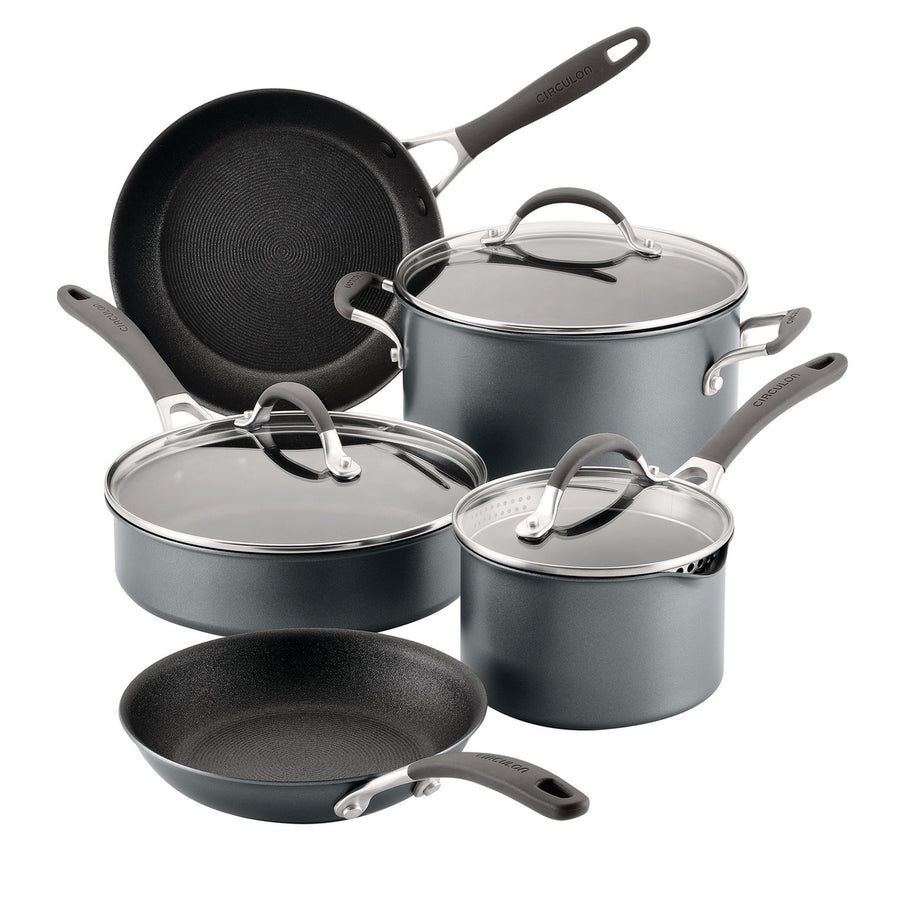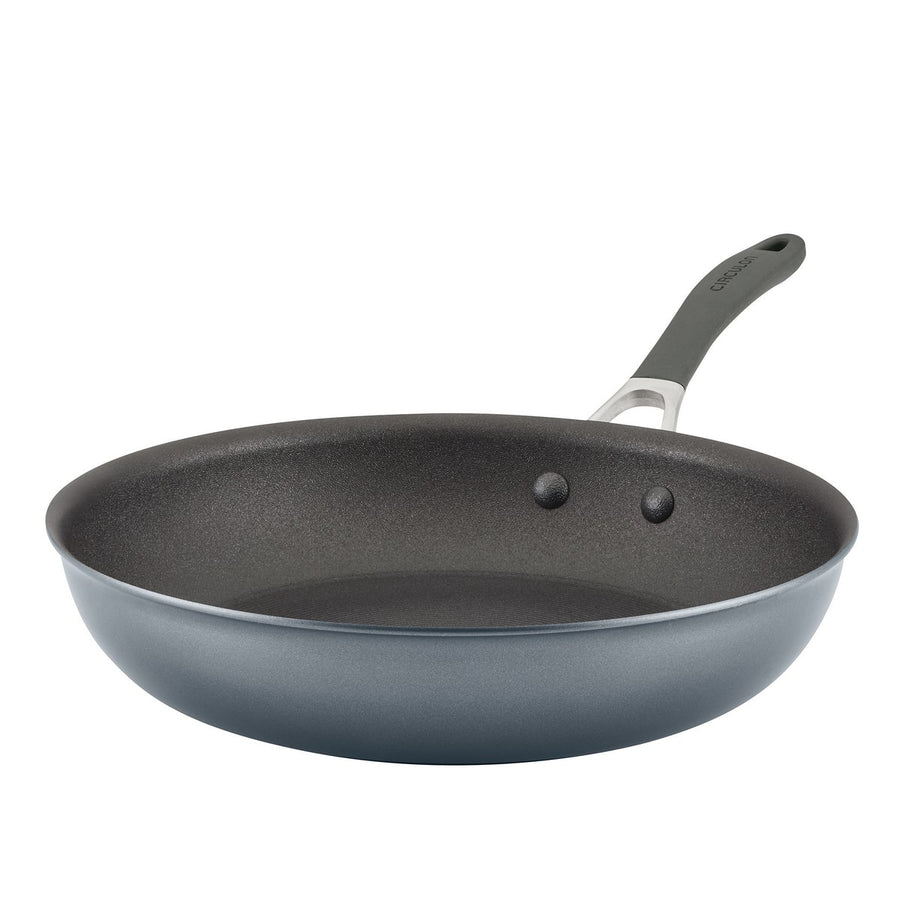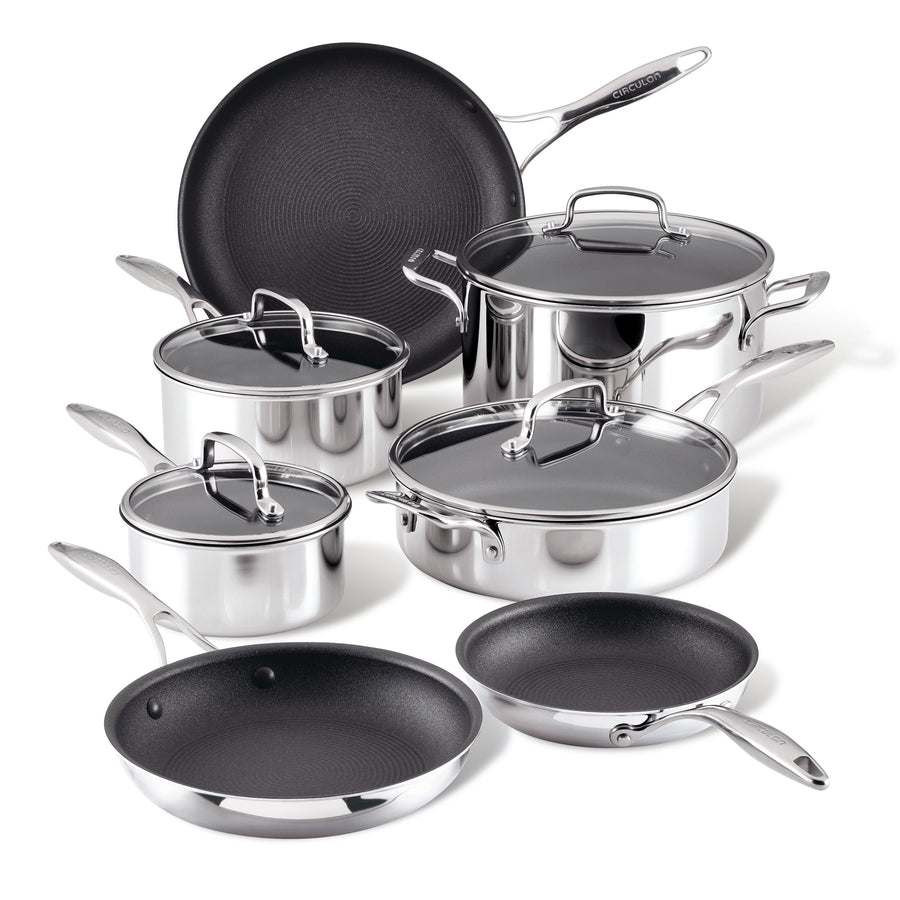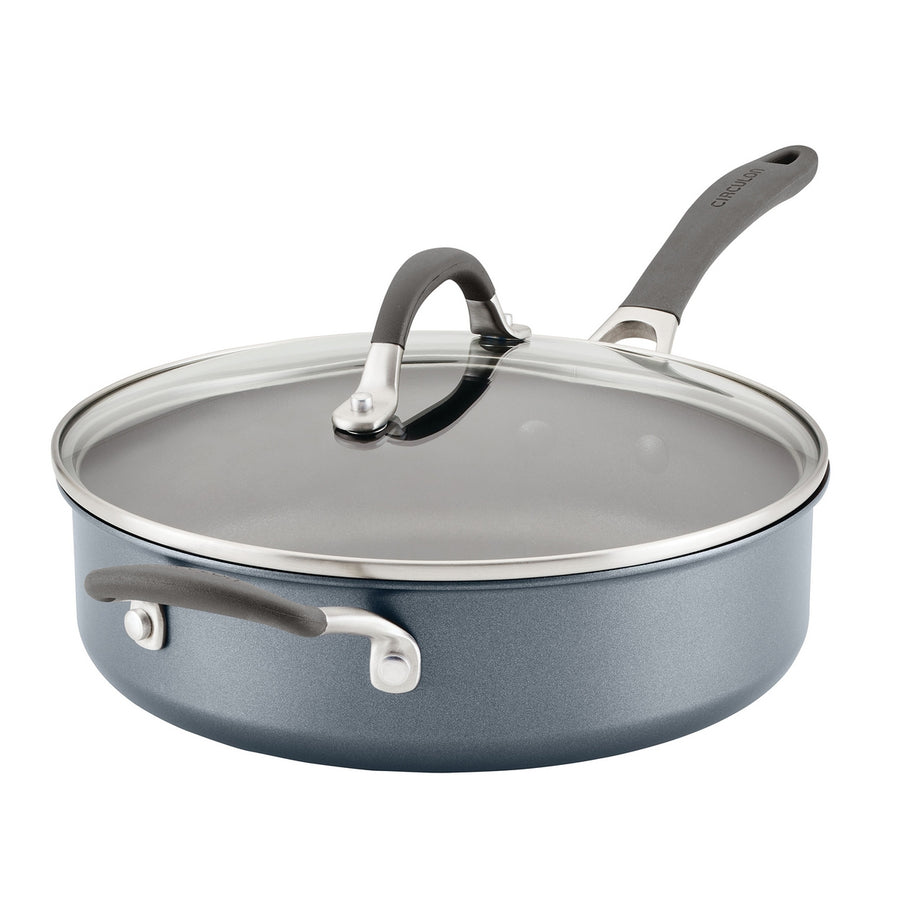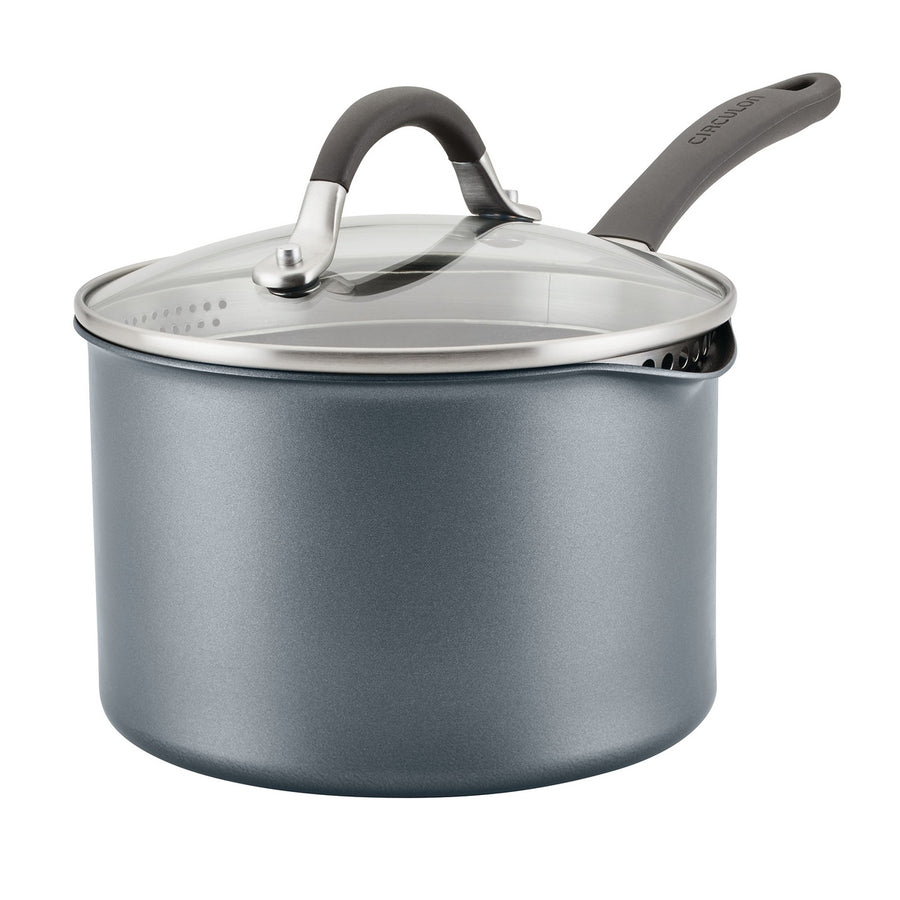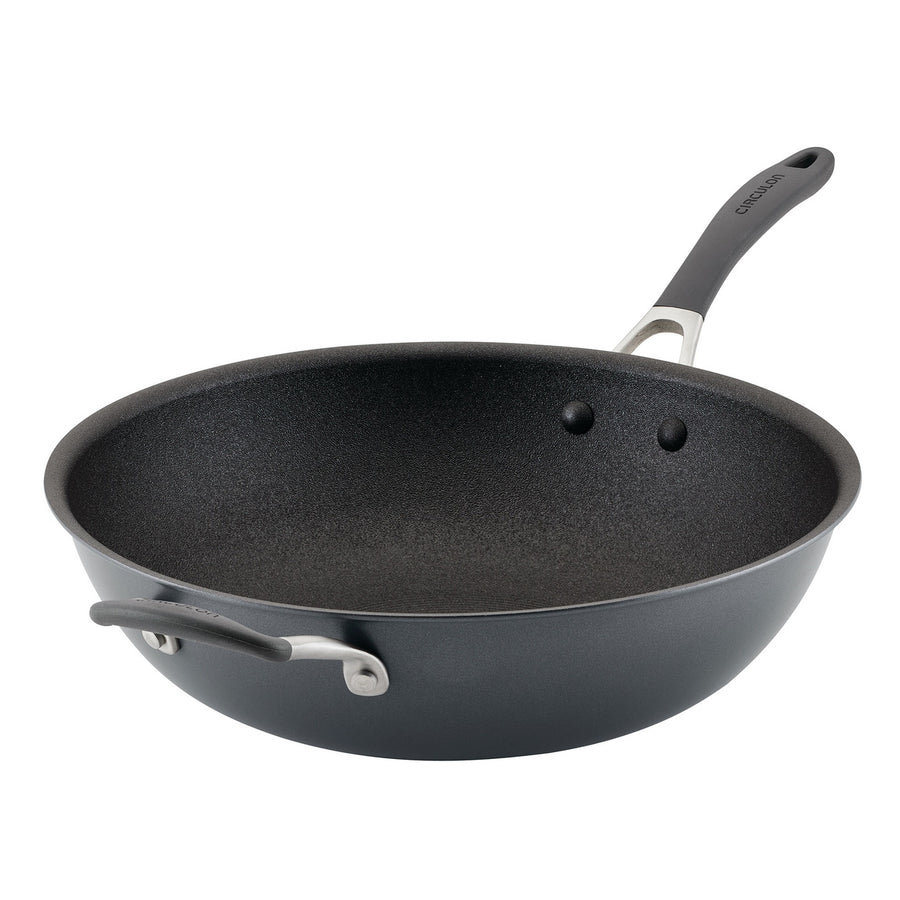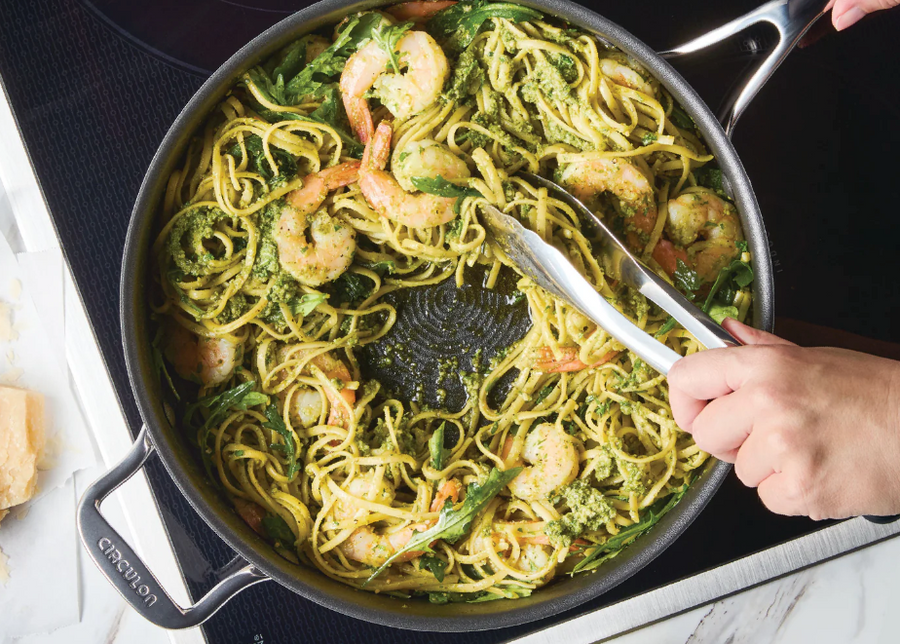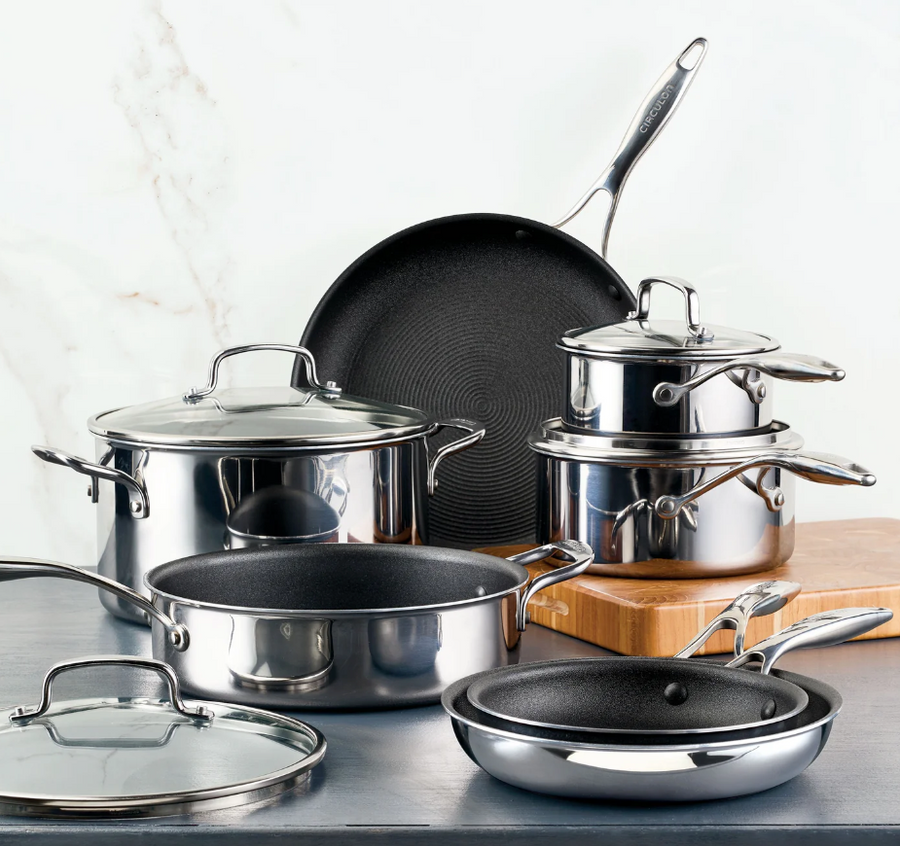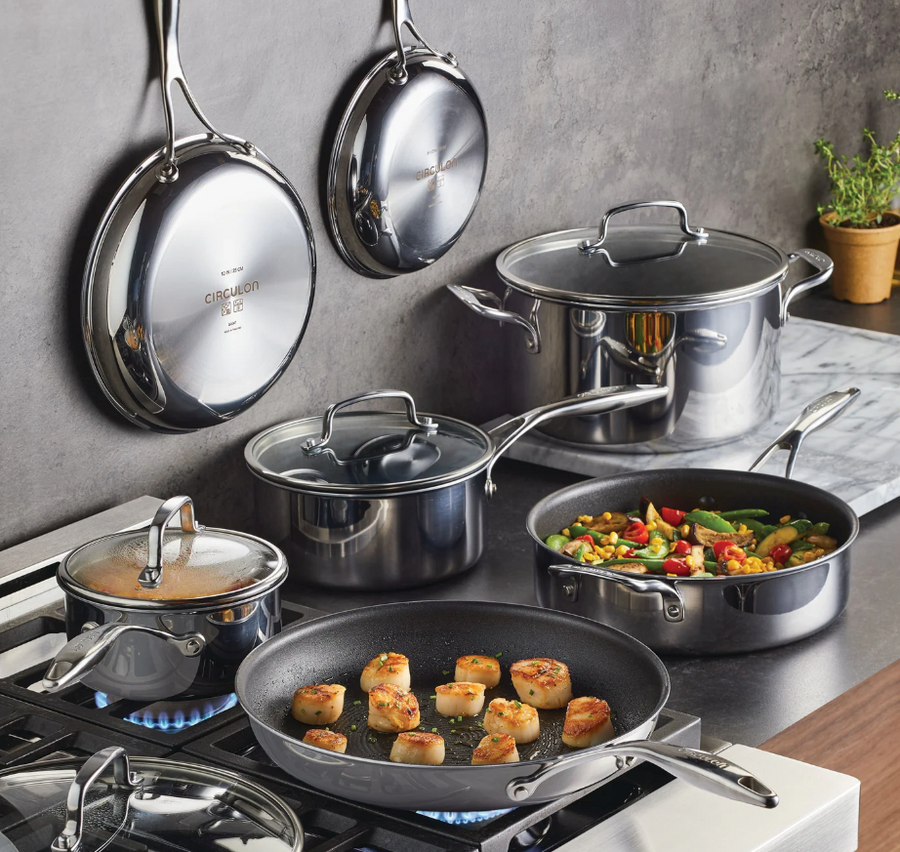Buying cookware: can it sometimes be a gamble? Unlike clothes, which can be tried on in store and returned to the racks if they don’t suit, there is only so much a person can do in store to decide if a pan is the right one for them.
We’re confident in the quality and performance of our cookware, so much so that we offer a lifetime guarantee, but unless you’re already an expert in our industry, how do you spot a quality product?
Our cheat sheet looks past the adverts and displays to give you the inside information on cookware quality.
What should I be looking for?

Get a handle on the situation
One of the first things you will likely do when shopping for a new pan in store, is pick it up. You can really glean a lot about how a pan is likely to perform based on the handle you are holding it by. Firstly and most importantly: it should not wobble. If the pan body is already wobbling on the handle and it hasn’t even left the shop yet, put it back down and move on.Riveted or Spot Welded?
The two most common ways of attaching a pan body to it’s handle is either by riveting; metal studs inserted through holes in both the pan and the handle and then hammered down to form a non removable bond; or spot welding, where the handle is attached directly to the outside of the pan. Riveted handles will not come loose, making for a much sturdier and hardwearing handle. Spot welding can also compromise the quality of the pan, leading to warping and loss of quality.
Circulon Style pans are designed with flat rivet technology, which gives the sturdiness of a riveted handle and the smooth interior of spot welding, without compromising on the quality of the pan.

Feeling Baffled?
It is also important to consider the material of your handle. Hollow handles are cheap to produce, but act as a chimney for heat during cooking. Always look for solid handles. Solid metal handles can still get hot during the cooking process, if you are opting for fully metal fittings, ask in the handle is fitted with a baffle. A pan handle fitted with a baffle will cut down on heat transfer. Traditionally, wooden handles were used to ensure a cool handle when using your pan but wooden handles will mean that the pan is not oven safe. As a multi purpose alternative, soft grip handles or phenolic handles are both excellent choices.Cheat Sheet
DO give the pan the 'wobble' test; a pan should not wobble on its handle.
DON'T opt for a spot welded handle.
DO consider soft grip handles or high heat phenolic handles.
DON'T choose a pan with a hollow handle.

Put a lid on it
Lids are most commonly made from aluminium, glass or stainless steel. Regardless of material or silhouette, the most important function of a lid is to trap steam and seal. Therefore, it must fit the pan’s body properly. The snugger the fit: the better. If you can slide the lid around too much on top of the pan body, you do not have a fitting lid and will likely lose steam during cooking.Heavy Metal
Plain aluminium lids will tarnish easily and the softness of the metal can be easily dented, ultimately affecting the fit of the lid to the pan body. More commonly, stainless steel is used as a metal lid. Quality is determined by thickness and polishing. They will keep their lustre and shape where plain aluminium may not.

Heart of Glass
Glass lids are one of the most popular lid choices as they are designed to be break resistant and offer see through convenience. No glass lid is break proof but a quality glass lid will be heat tempered and designed to break in a way that is safe i.e contained within the rim of the lid, shattering safely. High quality glass should see no problems with regular, normal use. One way to tell if a glass lid is not high quality is if it comes with a small steam vent. These metal washers in a glass lid have been sold as a feature, a way to drain water or let steam escape. Actually, a steam vent is an indication of poor quality glass that cannot withstand the normal steam of cooking without a steam outlet.Cheat Sheet
DO test the 'snugness' of the lid within the pan body. Look for a good fit.
DON’T opt for an untreated aluminium lid, as this can dent.
DO look for heat tempered glass lids. This is glass treated in the same way as car windshields!
DON’T bother with glass lids that come with steam vents, these are advertising low quality.

All about that base
For most people, the base of the pan is a passing consideration. People rarely consider things like full encapsulation or environmentally friendly coatings. We are not most people. It is difficult though, to tell from simply looking at a pan whether the base if up to snuff. We can give you the call outs to look out for to help you select fantastic quality.Full encapsulation?
Without getting too technical (who are we kidding, we love to get technical) when a pan base is forged, several discs of metal are stamped together, enclosing one layer within at least two other layers of material, this is known as encapsulated.
For example, a layer of aluminium between two layers of stainless steel would be an encapsulated base. However, manufacturers looking to cut corners may make a base with a smaller disc of the more expensive material, thus claiming to have an encapsulated base but actually giving you a pan base with huge gaps inside. These gaps affect heat conductivity.
A truly quality base will be fully encapsulated, leaving no gaps when the pan base is forged, as shown in our photo. We have cut one of our pan bases in half and one of our leading competitors. Full encapsulation will give you even heating, no cold spots and a much higher quality pan.

Eco Friendly?
No PFOA, no lead, no cadmium. PFOA has been found to be carcinogenic to animals and the elimination of this chemical in PTFE coatings (non stick) makes for a more environmentally friendly and safer pan. Lead and Cadmium are heavy metals that can seriously affect your health.
Ultimately when looking for a an environmentally friendly pan, these callouts are a must but also in purchasing something quality and long lasting, you are investing in something that will not need replacing for a very long time, reducing the amount of frying pans and saucepans that are needed to be made.
Cheat Sheet
DO ask whether pans are ‘fully’ encapsulated.
DON’T purchase pans that don’t state if their coatings are PFOA, cadmium & lead free.
DO embrace the non-stick. PFTE may sound scary but is actually non toxic as long as it is PFOA free.
DON’T settle for low quality. Replacing a cheap pan every few years is much less environmentally friendly than investing in quality that will last decades.
